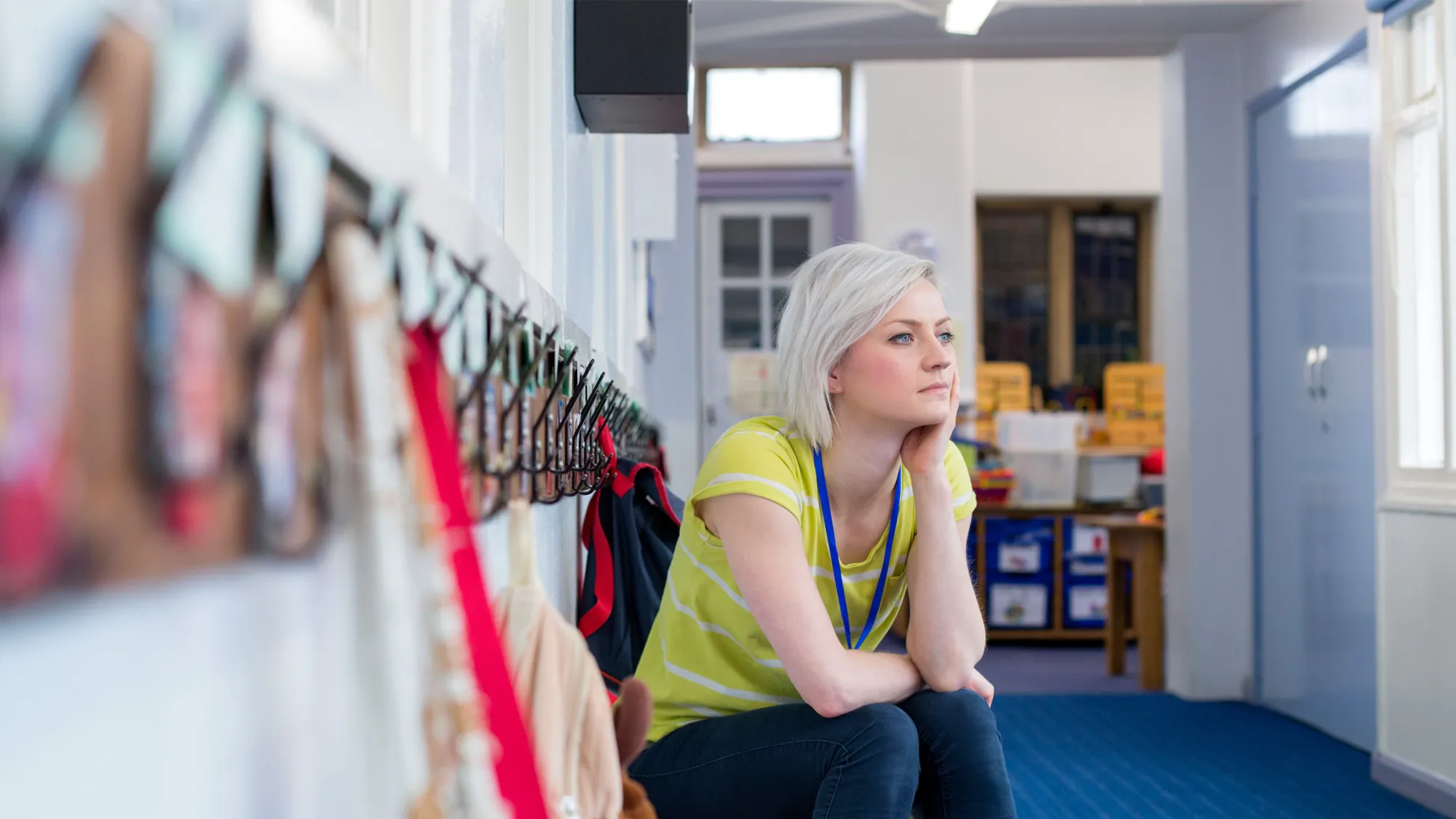“What should I do if my children are tired of studying, addicted to the Internet, emotionally unstable, have a low sense of self-worth, and are unable to get along and communicate with their parents?” In this society where “from fighting for dad to fighting for mom” to “fighting for children”, it is important to cultivate the inner qualities of children Strength becomes increasingly important. Among the many parenting classics, “mindful parenting” has gradually attracted the attention of parents and counselors.
What is mindful parenting? How to help children develop inner strength? How can parents benefit from mindfulness? In this article, we will discuss this issue.
Parents Must First Learn Mindfulness
Through these 4 exercises, you can first calm yourself down and understand the power of mindfulness before educating your children.
The first exercise is that as an adult, you should try to put aside your perspective, see it from a child’s perspective, and imagine the world.
- This is the ability of empathy that adults often use. We should even understand that young children will lack empathy ability.
- Spend at least some time doing this every day to remind yourself who your child is, what experiences and feelings a child of this age may have in the world, and try your best to see the world from a child’s perspective.
The second exercise is to imagine yourself looking and sounding from a child’s perspective.
- I don’t know if your child is in front of you right now. Imagine from the child’s perspective, what are you like as a mother or father at this moment? Do you feel the need to change your speech and behavior? How will you speak and what will you say? How do you want to connect with your children in this moment?
The third exercise is to see the child as a beautiful being.
- See the goodness of the child’s nature, the goodness and beauty that he or she has, instead of focusing on the many shortcomings of the child. See if you can be mindful of some of their autonomy in each moment, maintain that very keen, loving awareness, and work to accept them with kindness.
- Especially sometimes, some words and deeds of your children make you feel angry and it is difficult to accept them. Please remember that their behavior and the goodness of their nature are two different things.
- If you happen to encounter some troublesome behaviors, such as a child’s lack of restraint in using mobile phones and computers, when you have such a strong feeling about your child’s behavior, you may even want to make some harsh criticisms. Is it possible to see children as beautiful and good in their own right, to separate their existence from their behavior?
The fourth exercise is to be aware of your expectations as a parent for your children, and consider whether your expectations are the best for your children.
- This is a continuous process of self-exploration. You can ask yourself what you expect and what you think, try to see what you may have missed, and be aware of how you convey your expectations, and how these expectations affect children.
- When you must establish principles and boundaries, make sure they are consistent. Understand what your expectations are for your children, whether it is in terms of work and rest, or terms of further education and grades.
- There is a fundamental question: “What is important to your children and what is important to you?” Continue to self-inquire about each of your expectations.
- Sometimes it is very easy for us to blindly follow a social expectation, blindly following the expectation of the crowd. Sometimes it takes being able to take a step back and look at what you want as a parent for your child, and get down to the fundamental question – “What is important?”
Mindfulness Education Helps Children Develop Inner Strength
Both parents and children need to seek peace of mind and body, but peace is far from enough. Awareness is also required, and mindfulness practice can meet these needs.
The “presence” and “awareness” skills in mindfulness practice are exactly the tools that allow children to learn to “pause”.
By practicing “focusing on the breath,” children can become aware of what they need in this moment. This allows them to get out of their “automatic thinking mode”, be aware of and explore what triggers their behavioral and emotional impulses, and learn to accept that not everything in life happens as they want it to and that it’s not always cool. Or very good.
They bring their attention kindly to everything they do, slowly learning not to hide anything, but simply to develop an understanding of their inner world and that of others.
By experiencing qualities like care, patience, trust, and acceptance at an early age, your children will be like saplings firmly rooted in the here and now, with plenty of room to grow and be themselves.
Mindful parenting does not just focus on children’s academic performance or social skills but pays more attention to children’s inner world and helps them build a deep understanding and respect for themselves and others.
Through mindful parenting, children can learn how to stay calm and rational when facing difficulties and challenges, how to correctly view their own feelings and needs, and how to respect and understand the feelings and needs of others.
Start by Cultivating Children’s Self-Motivation
In response to the common worries of parents, this time we talk about cultivating children’s self-motivation, which has many benefits for children’s learning.
Parents Set a Good Example
- Parents should try to “see” their children’s true inner feelings as much as possible in their lives because, for children, their metacognitive abilities need to be learned by imitating parents’ observations of their children.
- Whenever his true feelings are expressed by his parents, the child will have a relaxed feeling of being “seen and understood”, and at the same time, he will also understand: Oh, so this is how I feel!
- Children’s true feelings include their needs, thoughts, emotions, feelings, perceptions of others and the world, etc. This process of “seeing” the child can be done through actions, words, or eyes.
- However, “seeing” does not mean that you cannot express your thoughts.
- For example, when your child doesn’t want to see people, you can say: “Although you are very tired, the person who is coming home soon is very important to me. If you don’t say hello, I will feel very embarrassed.”
- During this process, accompany your children to “see” their true feelings. Including the good parts and the bad parts, both parents and children themselves need to be honest enough about their feelings.
Replace Fault-Finding with Positive Feedback
- Simply relying on rewards or punishments given by parents, children can only mechanically execute instructions like a robots.
- When children learn to use their drive to encounter small successful experiences, they will know more and more clearly how to learn.
- When raising children, parents should not set their goals for every specific event, such as an exam, a habit, etc. Only by protecting the child’s core of self and growing healthily can the child’s future be able to find its path.
- For example, if a child has unfinished homework but keeps watching TV, parents can try to say to the child: “I understand that you are anxious because you haven’t studied yet. Is there anything we can do now to relieve this anxiety? You can try it. , can learning bring a sense of accomplishment and pleasure?”
- If your child’s self-motivation pulls the “reins” in time, you can praise him and let him know that he is great.
Build Trust with Children
- There is such a little story. It tells the story of a pair of lovers who bought two birds. During the days when they could not see each other, they pinned their longing for each other on the birds.
- They each took the birds home and fed them carefully. From time to time, boys would release the bird from the cage and let it fly on their arms and shoulders. The girl’s bird has been kept in a cage, but it gets excited every time its owner appears.
- One day, the lovers took their little bird for a walk in the park. The boy naturally released the bird. The bird flew up and down happily and then landed back in the cage.
- The girl was inspired and opened her birdcage. The little bird inside was a little confused at first. When it found that it could come out, it suddenly burst into the sky with a loud cry and never came back.
- In this story, the boy’s bird trusts its master and knows that it can come out again every time he goes back.
- The girl’s little bird has been locked in a cage, and after finally waiting for such an opportunity to gain freedom, her reaction is naturally different.
- This enlightens us that changes in children do not happen overnight, nor does establishing trust with our children happen overnight.
- It may be a long process, but when the children feel your trust, they will be like the little birds that can be released from the cage at any time, daring to fly, and they will also be attached to the warmth of the family.
Conclusion
To sum up, mindful parenting is a way of cultivating children that focuses on their inner world. It can help children improve their self-awareness, develop emotional management abilities, enhance psychological resilience, and establish positive interpersonal relationships.
By practicing mindful parenting, we can help children develop a deep understanding and respect for themselves and others, thereby developing their inner strength.




